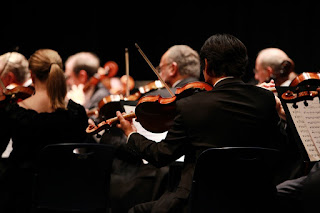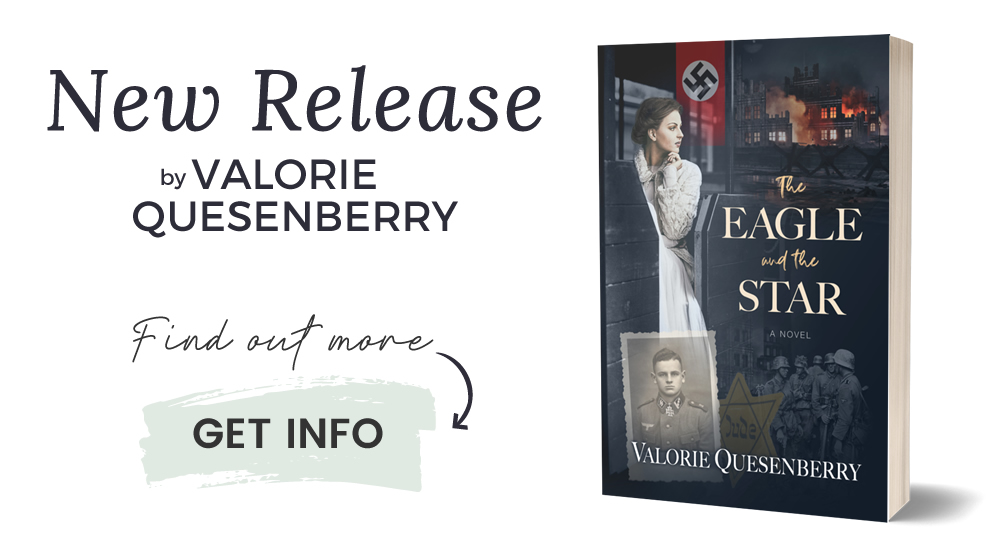It was cold when Madeleine Rosenberg stepped out of the door of the Tallman Center for the Performing Arts. The wind grabbed the door and banged it shut behind her. She clutched her instrument case and half stepped, half skated forward on the icy sidewalk.
It had been a good rehearsal. Since she had had been concertmaster, she had never worked with more dedicated or competent musicians than those in the symphony this season. The conductor had a command of musical score which was rare. Dr. Prescott directed with passion, a characteristic she found uncommon in many American conductors. Of course, he was very emotional about this particular piece of music, and everyone in the group knew why. He made no apology for his Christian beliefs. But, then again, neither did he harass anyone with them. He was simply a man of deep conviction who lived his faith and spoke of it with no shame. To say she admired him was not difficult. But to accept his faith was.
Madeleine was a proud Jew, a daughter of Israel displaced from her homeland decades before her birth through the courtesy of the Third Reich. Her great-grandparents perished in Auschwitz, their bodies fueling the crematory ovens. Her grandfather, Jacob, survived and started a new life in America, marrying the lovely Hanne, of Russian Jewish descent. Together, they had forged a strong home and raised her father who looked no further than the Orthodox community for his bride. Madeleine and her two brothers had been raised in a household shaped by two great loves – Jewish heritage and music. These two themes continued to shape her life.
And that was why this holiday season was bringing her great consternation. For her love of music had finally collided with her beliefs in a situation she could not escape. The symphony was performing Handel’s Messiah. Never before, she was sure, had the great master’s work been played by one who was tormented by such internal conflict. The score was a delight, every nuance testament to the genius who created it. Yet, in every measure, Madeleine was forced to remember the words of Dr. David Prescott from the many conversations they’d shared. She could see him now, in her mind’s eye, his hand holding a steaming coffee mug instead of a baton, his gray eyes serious, that one wisp of hair falling over his forehead as he leaned toward her. “Madeleine, Jesus Christ is the Messiah. For you, for me, for everyone. He has already come to the world. Let Him come to your heart.”
And in every rehearsal, his words resonated through her being just like the notes from her violin as she drew the bow over them. The refrain kept repeating . . “Let Him come to your heart, let Him come to your heart . . .
So, they had parted ways, she and David. She told him she couldn’t do it. she couldn’t accept his Messiah, couldn’t continue a relationship with him that would lead her to deny everything she had been taught. She couldn’t even continue playing first chair – she was leaving the symphony at the first of the new year. There were other opportunities on the horizon, for her music and her future.
The ride home was cold and lonely. The streets were dismal today. Even her apartment window bore silent witness to her firm rejection of Christ. No glowing Christmas tree shined down on passersby. But she had to admit she did enjoy looking at those in the houses she passed on her commute. Was it possible to do as David claimed others had done – enjoy the traditions of both faiths? Become a Messianic Jew? The thought churned in her mind as she tried to sleep that night.
The morning dawned frosty and clear. Performance day. Madeleine poured a cup of gingerbread spice coffee and sat down on the couch, her gaze falling on a small New Testament that David had given her. They had been studying what he called the “Gospel of John.” And though his arguments made sense, Madeleine could not receive them. Her heart was comatose.
In a packed auditorium that night, she arranged her music and smoothed her black gown. Steeling her mind, she took a deep breath as the house lights dimmed and Dr. David Prescott strode out to the conductor’s box.
It was in the middle of For unto Us a Child is Born that something happened to Madeleine Rosenberg. As the glorious music swelled around her, the words of an ancient text filled her heart. “He came unto his own, and his own received him not.” (John 1:11)
And as clearly as she saw the notes on her score, she saw the truth. All the things she had heard from David suddenly clicked into place. God’s Son, Jesus of Nazareth, had been born for her, for the Jews. And in Him was her only Light. While her fingers danced on the strings, Madeleine’s heart lifted to the Messiah. At last, her soul was awakened. And she knew He had come.
The finale was spectacular. The crowd was on their feet for the Hallelujah Chorus, enraptured with the majesty of the music. Applause filled the hall. Dr. David Prescott bowed. As he turned to take her hand to accept the concertmaster’s recognition, she smiled with the lovely knowledge of the conversation they would have in a quiet moment later that evening. God willing, there would be many more concerts together. Because Messiah had come. Not just to Bethlehem, but to her heart.



Reading through my tears…Love it!